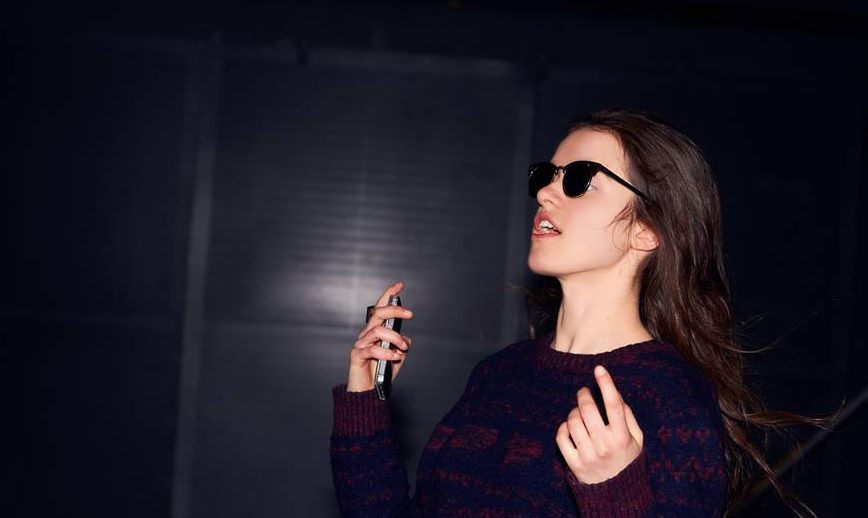Identical twins Viola and Sebastian are separated and must find their own ways to survive, leading to a series of disguises, confusion, and entanglements. Post-Truth Theatre Company, under the direction of Alice Taylor, transports this story of mistaken identity and love, as well as the story of an uptight man meeting his revenge, to the present day.
Illyria is reimagined as a nightclub, a concept that Taylor admits doesn’t work perfectly for every scene, but does work very well for many others. Olivia’s status as a celebrity is effect in terms of establishing her as distanced from her surroundings. The difference of Cesario to the others who want her attention is also part of what draws her to him.
Technology is also a key part of bringing celebrity culture to the stage, as the constant presence of camera phones contribute to the idea of an ever-watchful paparazzi. This works to draw attention to the bystander as the audience questions their complicity in the events that they document but may not engage with, some particularly true of cruel ones. It also makes us aware of the audience’s position of outside voyeurs on a circle of people’s private lives. The disastrous effects anonymous electronic messages may have are also explored.
Gender and sexuality is another focus of this production. All productions of Twelfth Night are inherently queer, due to the crossdressing, and both Olivia and Orsino falling for Viola/Cesario. This production also develops the subtext in the original play, allowing Antonio and Sebastian to have a romantic relationship, and looking at Orsino’s performance of masculinity.
Out of the characters and actors, I particularly enjoyed Robin Ferguson’s Malvolio, overflowing with hurt following his mistreatment, Chloe Taylor’s Viola, utterly bewildered in this final scene of confusion and revelations, and Esme Sander’s Olivia, who is perfectly cold as she rejects Orsino, and makes me want to see any contrasts in how she treats Cesario. That said, all the actors work together to form a strong cast.
In order to create the world of Illyria and its surroundings, the whole O’Reilly will be used, clearly showing the distinctions between those within the circle of celebrity and those without. Neon lights and a bar will create the club of Illyria itself. The stage feels a little crowded when almost the whole cast are on it; however, we are still able to focus on key characters at critical moments.
I haven’t heard any of Tom O’Connor’s original compositions beyond what is on the Facebook page, but the techno club music seems to suit the setting. The cast enjoy the fact that the fights are hand to hand, as opposed to swords, another aspect of modernisation, and Ariel Levine’s fight choreography is close up and violently physical.
From watching the final scene, and talking to both cast and crew, it’s clear that they are producing a darker version of the play, instead of the comedy we may expect. However, the concept and tone both work to bring the play into the modern day, and critique our society as well.



